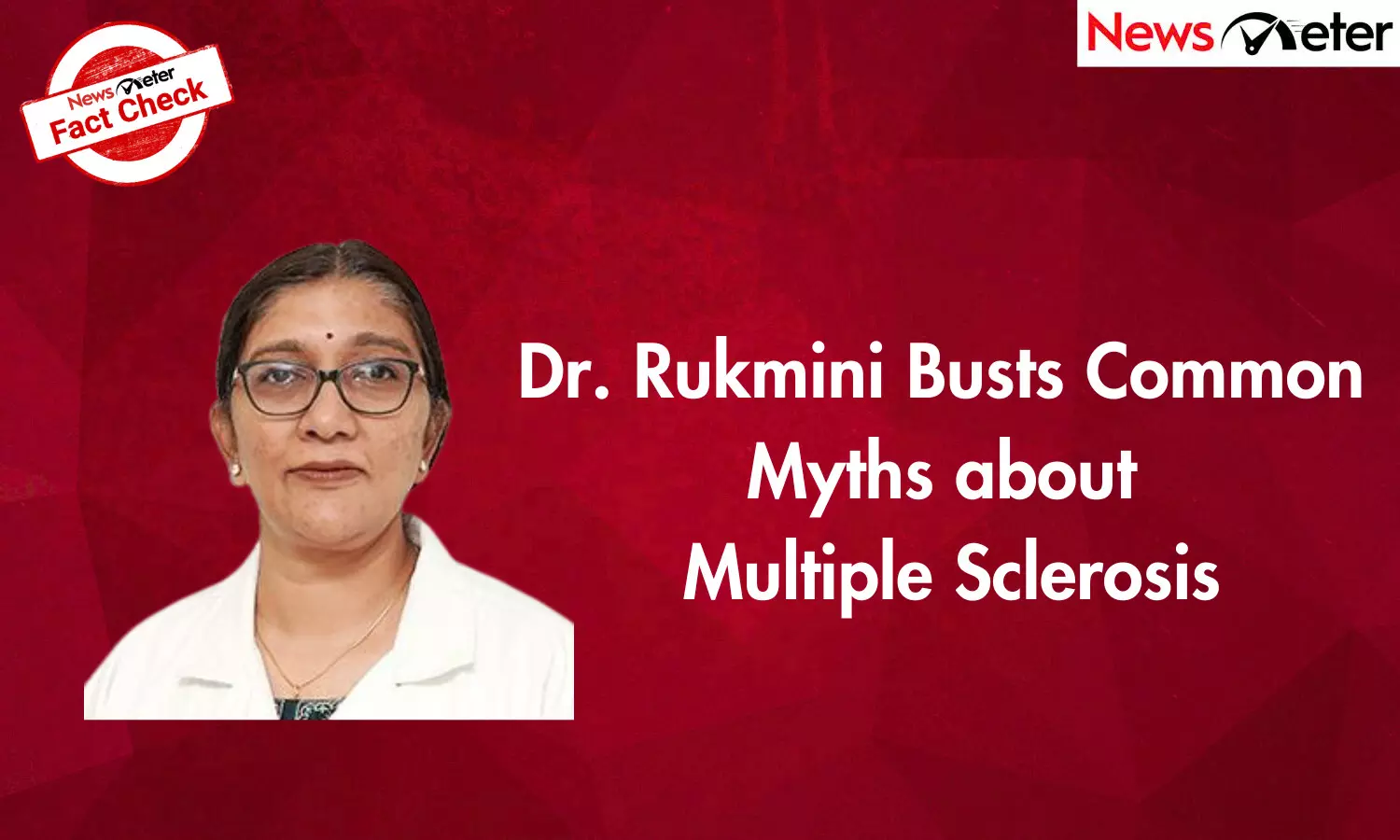Busting the top myths about Multiple Sclerosis: What you need to know
Multiple Sclerosis affects the central nervous system which has affected around 1.8 lakh people in India
By Dr. Rukmini Mridula Kandadai MBBS, DNB, DMPublished on : 10 Jun 2025 9:00 AM IST

Multiple Sclerosis (MS) is a chronic, degenerative disease which affects the central nervous system. More than 2.9 million people across the globe are affected by the condition, while 1.8 lakh people are affected in India.
MS is a condition where the immune system attacks the brain and spinal cord, resulting in numbness, weakness, trouble in walking and vision challenges among other symptoms.
Here are some of the common myths and the facts associated with MS.
Myth 1: It's difficult to diagnose MS.
Fact: MS can typically be identified by neurological tests and imaging, even though its early symptoms might be ambiguous and match those of other disorders. In order to begin effective treatment, early diagnosis is essential.
Myth 2: MS only affects the elderly.
Fact: Although MS can strike children, teenagers, and older individuals, it is most frequently diagnosed in people between the ages of 20 and 50. It is not a condition that only affects older people.
Myth 3: Exercise should be avoided by people with MS.
Fact: People with MS are advised to engage in regular physical activity. Over time, exercise can help with strength, mobility, and even fatigue reduction. Avoiding overeating is crucial, but maintaining an active lifestyle is also advantageous and part of the suggested MS management.
Myth 4: There is no discomfort associated with MS.
Fact: One known symptom of multiple sclerosis is pain. It may be musculoskeletal from weariness and immobility, or neuropathic (connected to the nerves) from spasticity. An essential component of MS care is pain management.
Myth 5: MS patients shouldn't become pregnant.
Fact: Pregnancy can be healthy for women with multiple sclerosis. In actuality, relapse rates frequently decline during pregnancy, most likely as a result of hormonal shifts. Pregnancy by itself does not impair long-term MS results, however relapses may happen after giving birth. It's crucial to speak with a doctor about managing medications during pregnancy.
Myth 6: MS has a treatment.
Fact: MS does not currently have a cure. Nonetheless, there are numerous efficient therapies that can lower relapse rates, slow the course of the illness, and enhance quality of life.
(The author of the article, Dr. Rukmini Mridula Kandadai is a Senior Consultant Neurologist and Clinical Director- PDMDRC ( Parkinson’s Disease and Movement Disorders Research Centre) at Yashoda Hospitals, Hyderabad)
Next Story